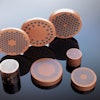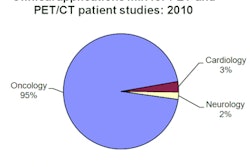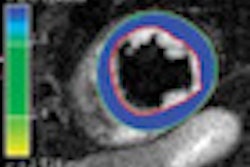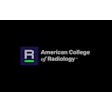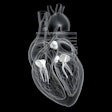Researchers at the Massachusetts Institute of Technology (MIT) have developed an optical coherence tomography (OCT) system that they believe holds promise for cancer screening in the esophagus or colon.
The system, which is described in an article in Biomedical Optics Express, can capture data at a rate of 980 frames (equivalent to 480,000 axial scans) per second, while imaging microscopic features less than 8.0 x 10-6 of a meter in size, according to MIT. The researchers, led by James Fujimoto, believe the system's speed and resolution will enable 3D microscopic imaging of precancerous changes in the esophagus or colon and the guidance of endoscopic therapies.
The team is collaborating with clinicians at VA Boston Healthcare System and Harvard Medical School to investigate endoscopic OCT as a method for guiding excisional biopsy to reduce false-negative rates and improve diagnostic sensitivity.
The system's optical catheter uses a piezoelectric transducer, which must be further reduced in size before it can be deployed with standard endoscopes. It also has only been used in animal models and in samples of human colons that had been removed during surgical procedures, the researchers noted.
Further development and testing must be performed before the technology can be tested in human patients, according to the researchers.



